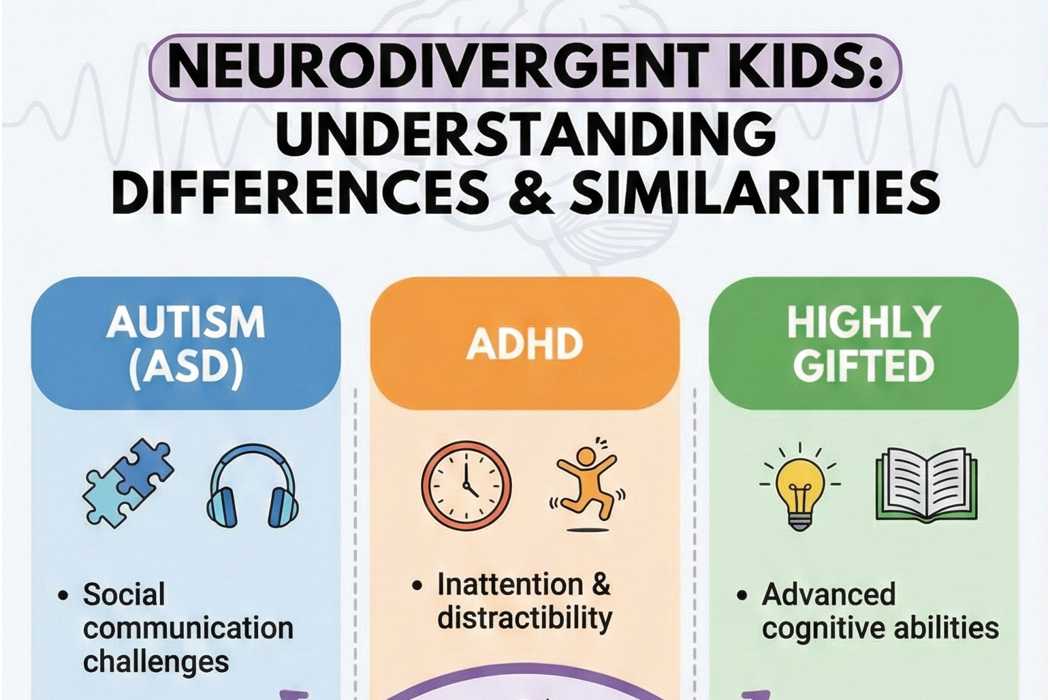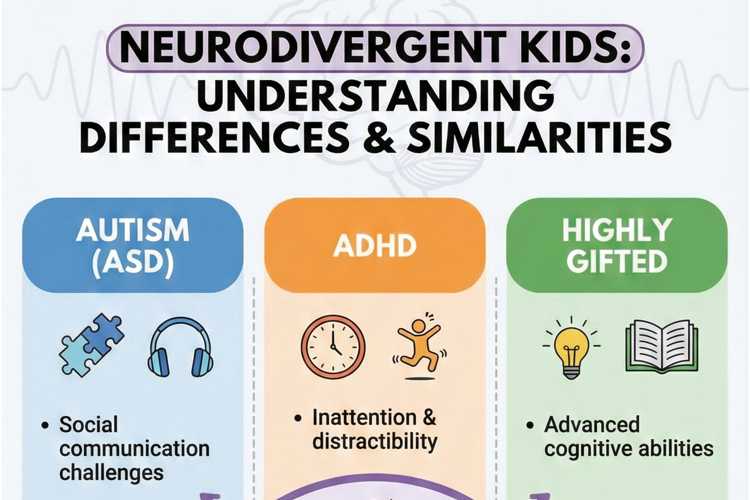Why Consistency Beats Complexity in Teaching Basic Skills (Especially for Neurodivergent Learners)

Image made with AI (DALL-E)
Discover how structured repetition and daily routines help neurodivergent learners master basic skills faster than complex teaching methods.
Why Consistency Beats Complexity in Teaching Basic Skills
Here's a wild thought: what if the secret to teaching isn't jazz hands and elaborate lesson plans, but showing up and doing the same boring thing every single day?
I know, I know. "Boring" isn't exactly the buzzword in education circles right now. Here's the uncomfortable truth—especially for neurodivergent learners—complexity sometimes sabotages learning. The brain doesn't need more bells and whistles. It needs predictability, repetition, and a fighting chance to actually build skills that stick.
If you're teaching someone with ADHD, autism, dyslexia, or any learning difference, you've probably noticed that your Pinterest-worthy lesson plan sometimes falls flat. Meanwhile, that simple routine you've been doing every Tuesday? That's where the magic happens. Let's talk about why consistency beats complexity in teaching basic skills—and how to harness structured repetition without losing your mind.
The Neuroscience of Why Repetition Actually Works
Your brain is basically a pattern-recognition machine wrapped in anxiety and caffeine dependency. And when it comes to learning new skills, the brain loves—craves—predictable patterns.
How Neural Pathways Form Through Repetition
Every time you repeat an action or thought, you're strengthening neural pathways. Think of it like walking through tall grass: the first time is hard, but by the hundredth time, you've got yourself a nice little path. That's neuroplasticity in action.
The Cognitive Load Problem with Complex Methods
Here's where complexity becomes the villain. Every new variable you introduce—different location, varied routine, multiple techniques at once—adds cognitive load. For someone already managing sensory processing differences, attention regulation, or working memory challenges, that extra load isn't "enriching." It's exhausting.
Structured repetition for neurodivergent learners works because it minimizes decision-making and maximizes focus on the actual skill. Less "what's happening?" and more "oh, I know this part."
Key takeaway: The brain learns through repetition. For neurodivergent learners, consistent routines reduce cognitive load and allow neural pathways to form more efficiently. Simple wins.
Why Neurodivergent Learners Thrive on Predictability
Neurodivergent individuals often struggle with self-regulation. Their internal executive function system—the part that plans, organizes, and initiates tasks—needs backup.
When you establish daily routines for skill development, you're essentially lending your organizational system to someone whose internal system is playing whack-a-mole with priorities. It's not enabling; it's scaffolding.
For consistent teaching methods for ADHD learners and those with other learning differences, this means frequent, short practice sessions beat marathon cram sessions every time. Daily 15-minute blocks outperform weekly hour-long sessions because they interrupt that forgetting curve before skills decay.
Reality check: If your kid can't remember Tuesday's lesson by Thursday, don't assume they're not trying. They're fighting biology. Consistent daily review rewrites that script.
Daily Routines That Actually Reinforce Progress
Alright, theory is great, but let's get practical. How do you build these magical daily routines for skill reinforcement without adding another overwhelming item to everyone's to-do list?
The 15-20 Minute Sweet Spot
Research consistently shows that 15-20 minute practice sessions hit the Goldilocks zone for neurodivergent learners. Short enough to maintain attention, long enough for meaningful consolidation.
Five-minute sessions feel too rushed for the brain to settle into learning mode. Forty-five minutes? You've exceeded attention capacity and now everyone's just staring at the wall contemplating snacks.
Same Time, Same Place, Same Ritual
Here's where building daily routines for skill reinforcement gets delightfully simple: anchor your practice to existing habits.
- Right after breakfast: math facts practice
- Before bedtime: reading routine
- After school snack: handwriting drills
The consistency leverages something called "habit stacking"—attaching new behaviors to existing ones. Your circadian rhythm even helps; the brain starts preparing for learning at that expected time.
Visual Progress Tracking
Neurodivergent brains often struggle with perceiving incremental progress. Everything feels impossible until suddenly it clicks—but that emotional rollercoaster derails motivation.
Combat this with concrete visual tracking: - Daily checklists (even for attempted effort, not just success) - Progress charts with stickers or checkmarks - Before/after comparison journals
When a student can see they read two more words this week than last week, abstract "trying harder" becomes concrete achievement.
Pro tip: Celebrate micro-wins. That neural pathway needs emotional reinforcement to strengthen. Progress is progress, even when it's hilariously tiny.
How to Implement Consistency Without Going Full Drill Sergeant
Nobody wants to be the joyless repetition robot. So how do you implement structured repetition teaching strategies with, you know, actual humanity?
Step 1: Audit Your Current Approach for Unnecessary Complexity
List out everything you're currently doing to teach the skill. Now ask: "Is this essential to the core skill, or am I adding it because I think it's engaging?"
Strip it down. If you're teaching letter formation, you don't need glitter, four different writing implements, and a song. You need a pencil, paper, and a consistent model.
Step 2: Design a Repeatable Daily Routine
Create a simple structure: 1. Warm-up ritual (2 minutes) - Same every time 2. Core practice (10-15 minutes) - The actual skill 3. Cool-down/review (3 minutes) - Reflect on progress
Write it down. Make it visual. Stick it somewhere everyone can see it.
Step 3: Create Your Feedback Loop
This is your progress tracking system. Could be: - A simple notebook where you note what was practiced and how it went - A checklist taped to the wall - A shared digital doc with smiley faces
The point is consistency in tracking, not elaborate data analysis. You just need enough information to notice patterns and celebrate growth.
Step 4: Commit to 4-6 Weeks Before Changing Anything
This is the hardest part. Research on habit formation suggests 66 days on average to establish automatic behaviors. You need at least 4-6 weeks of consistent practice before you evaluate whether something's working.
If you're changing the routine every week because you're worried about boredom, you're accidentally sabotaging the exact mechanism that creates mastery. Trust the process (and yes, I hear how insufferable that sounds, but it's true).
Warning: You'll be tempted to "mix things up" around week three when everything feels stale. Don't. That's exactly when neural pathways are starting to strengthen. Push through the boring middle.
Common Mistakes That Sabotage Consistent Learning
Even with the best intentions, we often trip over predictable pitfalls. Let's speedrun through the greatest hits.
Overloading Instruction with Multiple Techniques
Trying to teach phonics through three different methods simultaneously doesn't create a well-rounded approach. It creates confusion. Master one approach through repetition before introducing variations.
Assuming Weekly Lessons Suffice
For neurodivergent learners working on basic skills, once-a-week practice sessions might maintain existing skills but rarely build new ones. Daily micro-practices outperform intensive weekly sessions for foundational skill development.
Abandoning Routines Too Early
If you're not seeing progress in week two, your routine probably doesn't suck. You're just in the messy middle where neural pathways are forming but haven't strengthened enough to show obvious results. Most people quit right before the breakthrough.
Prioritizing Engagement Over Effectiveness
I get it—repetition feels boring compared to gamified apps and elaborate activities. But simple repetitive teaching methods that actually work beat entertaining methods that don't stick. Effectiveness is engagement when students finally experience mastery.
FAQ: What You're Really Wondering About Consistency
Why is consistency more important than complexity in teaching basic skills?
Basic skills form the foundation for everything else. They need to become automatic, requiring minimal conscious thought. Complexity before mastery just adds cognitive load without building proficiency. Think of it this way: you can't build elaborate vocabulary if you're still sounding out basic words. Consistency creates automaticity; automaticity creates capacity for complexity later.
How does structured repetition help neurodivergent learners specifically?
Neurodivergent brains often have weaker executive function and working memory. Structured external routines compensate by removing decision-making from the equation. When the environment provides predictability, the brain can focus entirely on skill acquisition rather than figuring out "what happens next." It's the difference between learning to ride a bike on a smooth path versus navigating obstacles while learning to balance.
The Bottom Line: Boring Wins
I'm not going to tell you that consistency is exciting. It's not. Showing up every day to practice the same math facts or letter formations isn't going to win any Parent of the Year awards.
But you know what does feel exciting? Watching a kid who's struggled for months suddenly get it. Seeing their face when they realize they just read that word without help. Hearing them say, "Wait, that was easy."
Consistency beats complexity in teaching because learning isn't actually about the teaching—it's about the neural pathway formation happening inside the kid's brain. Your job is to show up, provide structure, minimize interference, and give those pathways time to strengthen.
For neurodivergent learners, this approach isn't just effective—it's often the difference between foundation-building and perpetual frustration. Structured repetition, daily routines, and predictable patterns aren't limitations. They're the scaffolding that makes real learning possible.
So embrace the boring. Trust the process. Show up tomorrow and do the same thing you did today.
Your student's brain is building highways. You're just making sure the path is clear.
Ready to build consistent routines that actually stick? Start with one skill, one 15-minute daily block, and commit to six weeks. Track the progress. Celebrate the micro-wins.
Disclaimer
This article is for general information purposes only and does not constitute medical, psychological, or therapeutic advice. For individual questions or health concerns, qualified professionals should be consulted.
Links marked with an asterisk (*) are affiliate links to external offers. If you click on such a link and make a purchase through it, we receive a commission from the provider. The price does not change for you.
Related Articles

Autism, ADHD, or Gifted? A Visual Guide to Differences and Overlaps
Struggling to tell the difference between sensory quirks, high energy, and advan...
7 min read
From Frustration to Fun - Turning Writing Practice Into Play
Discover game-based writing exercises that transform reluctant writers into eage...
8 min read
Building Reading Confidence Through Multisensory Activities That Actually Work
Discover research-backed hands-on reading techniques using touch, sound, and mov...
9 min read
Creating a Calm Learning Space at Home - A Parent's Guide to Better Focus
Discover how lighting, sound, temperature, and texture impact your child's focus...
12 min read
